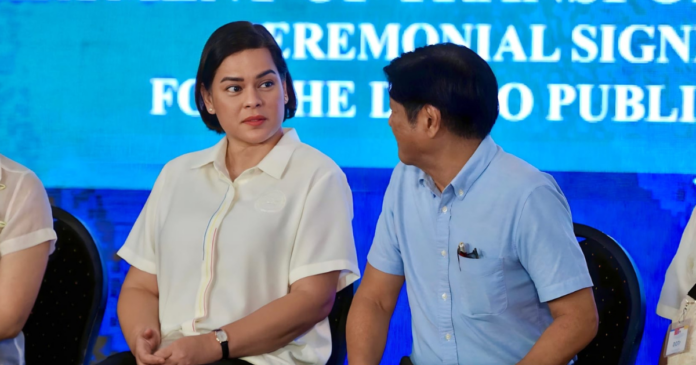On December 30, 2024, President Ferdinand Marcos Jr., issued Executive Order No. 81 to restructure the National Security Council (NSC). Established in 1950, the Council is a vital advisory body responsible for crafting policies on national security issues, including defense, counterterrorism, and disaster preparedness.
The executive order significantly alters the composition of the NSC, removing Vice President Sara Duterte, former presidents, and the Secretary of Budget and Management from its membership.
The revised Council now includes officials directly involved in security-related matters, such as the Executive Secretary, the National Security Adviser, and the Secretaries of National Defense, Foreign Affairs, Interior and Local Government, Justice, and Energy.
Chiefs of the Armed Forces and the Philippine National Police remain as members.
According to President Marcos Jr., the reorganization aims to streamline the NSC and enhance its ability to address evolving threats, such as cybersecurity risks and territorial disputes.
The exclusion of Vice President Sara Duterte and former presidents has sparked debate. Critics argue that these changes reduce the diversity of perspectives and may overlook valuable institutional memory.
“Former presidents have historically provided advisory roles that help guide the council’s long-term strategy,” the Manila Standard noted, adding that their absence risks losing “crucial insights derived from decades of leadership experience.”
The removal of Vice President Duterte is particularly significant given her dual role as Secretary of Education and her leadership in security initiatives under her Office, which previously served as a channel for critical security-related contributions. While the Philippine Star reported that the move “aligns with a focused security agenda,” it also raised concerns about potential political motivations, especially amid tensions between Duterte and Marcos.
Supporters of the reorganization, including security experts cited in Rappler, argue that a streamlined NSC allows quicker decision-making and more focused policies. However, they cautioned that “this efficiency should not come at the expense of inclusivity and comprehensive strategies.”
Observers are closely monitoring the restructured NSC to assess its effectiveness. While it reflects the administration’s push for a more agile security apparatus, its success will depend on how well it navigates the country’s complex security challenges.
It is worth noting that the relationship between President Marcos Jr. and Vice President Duterte has been strained since mid-2024, following disagreements over key policies and governance priorities. Duterte’s public criticism of education and security policies, plus the scrutiny over the Office of the Vice President’s confidential funds, has fueled speculation about a widening rift, adding a layer of complexity to this reorganization.



